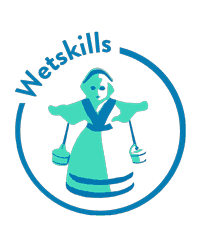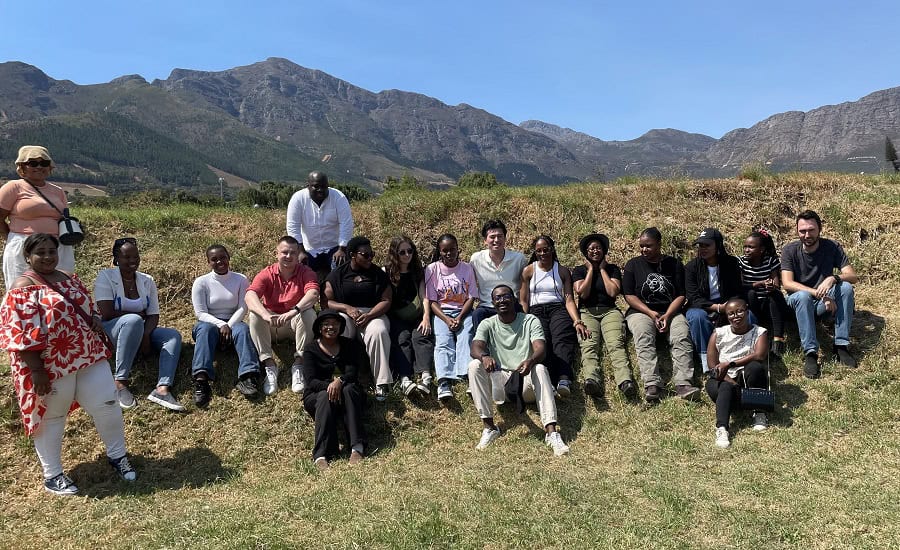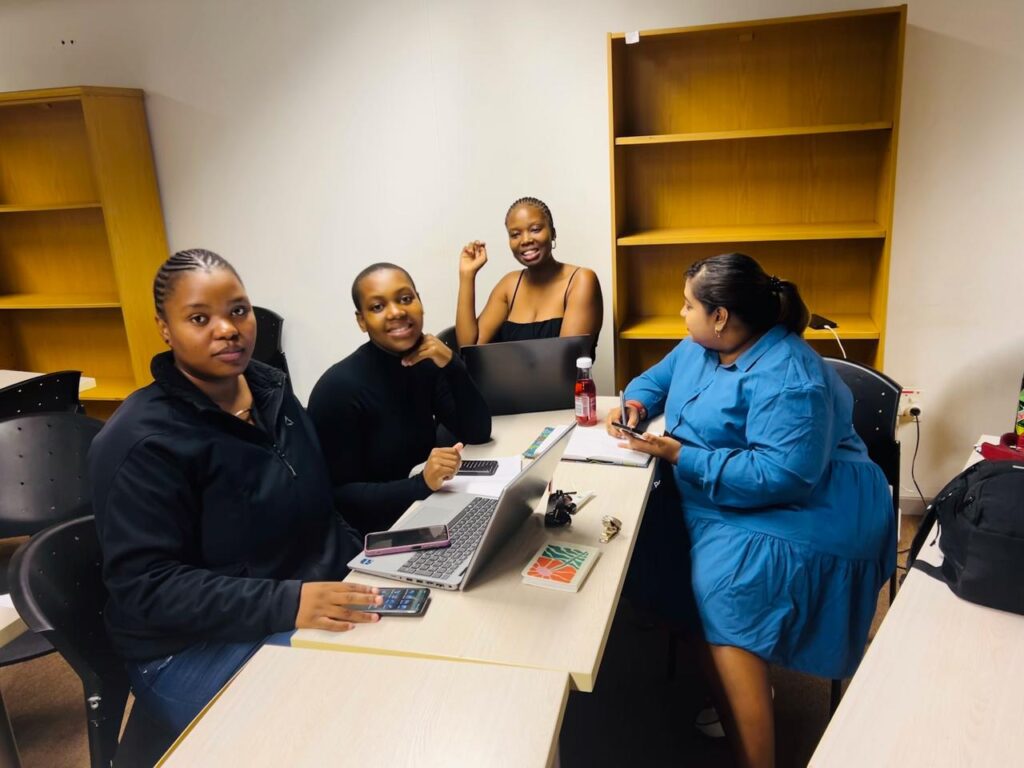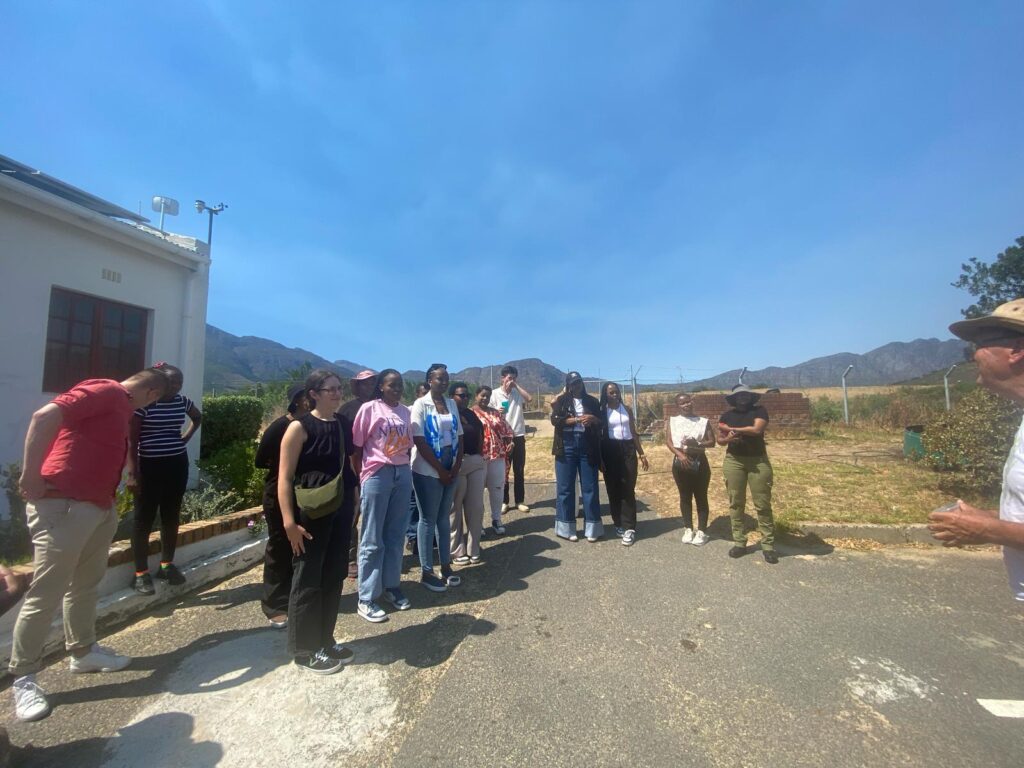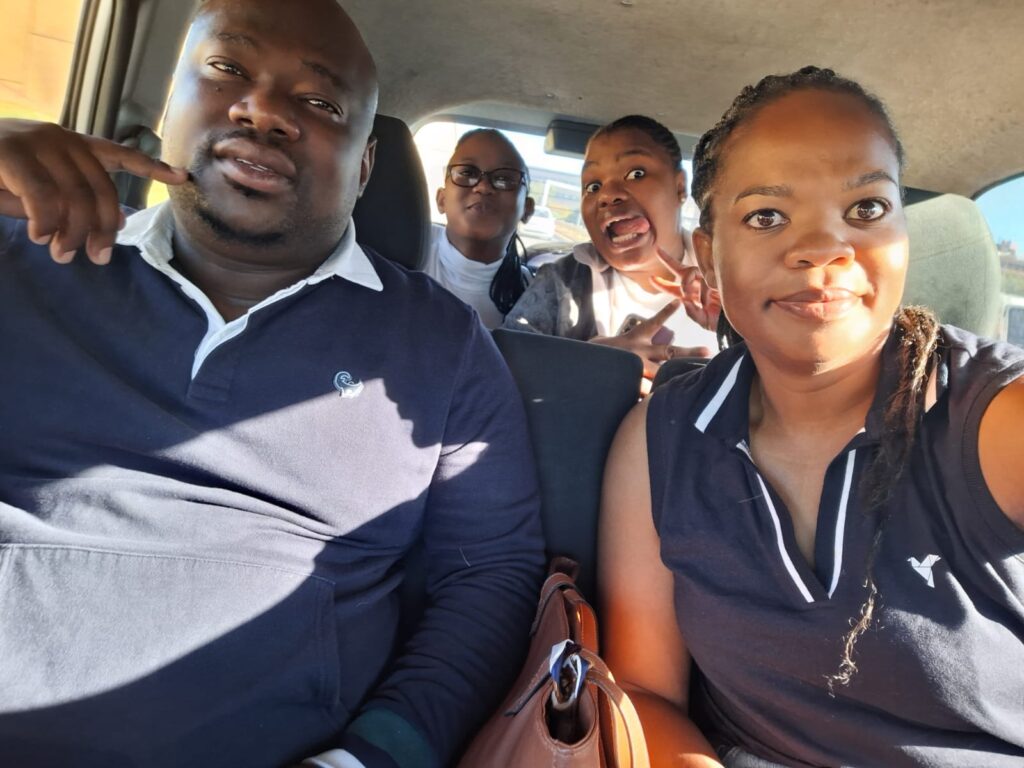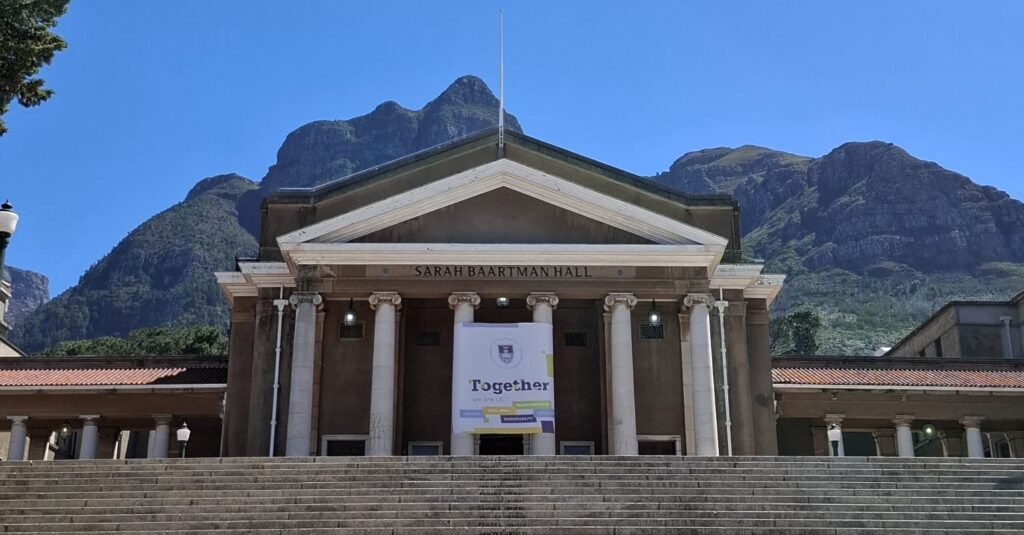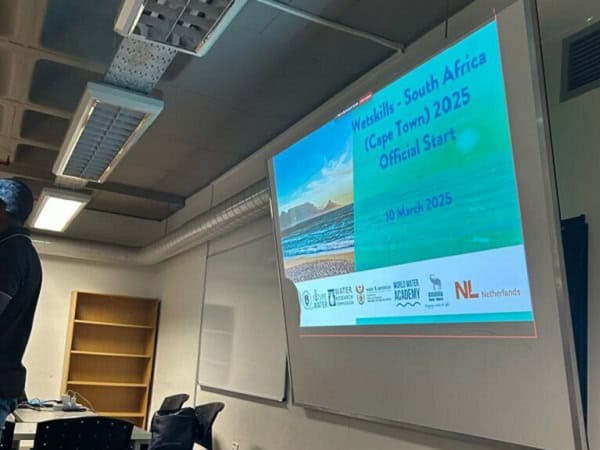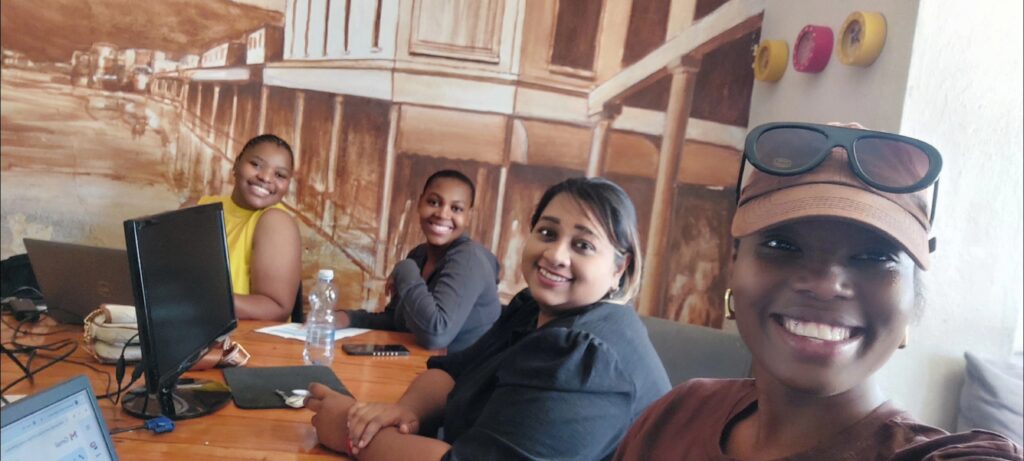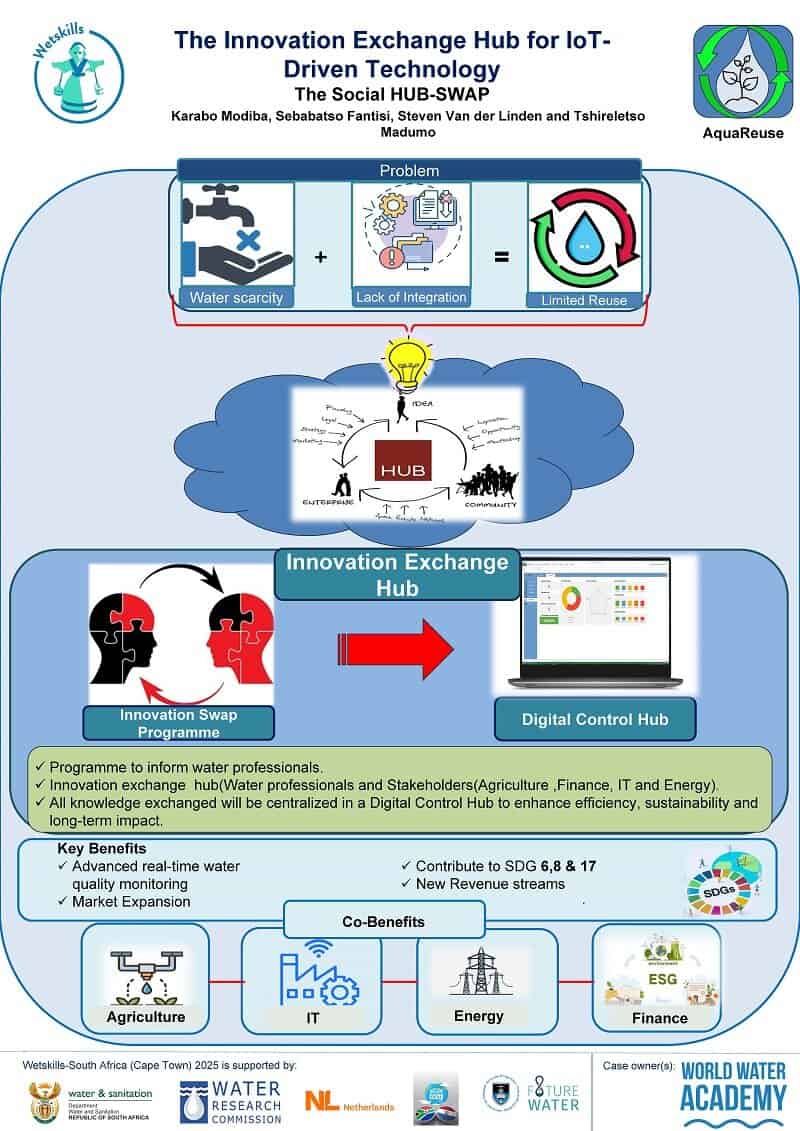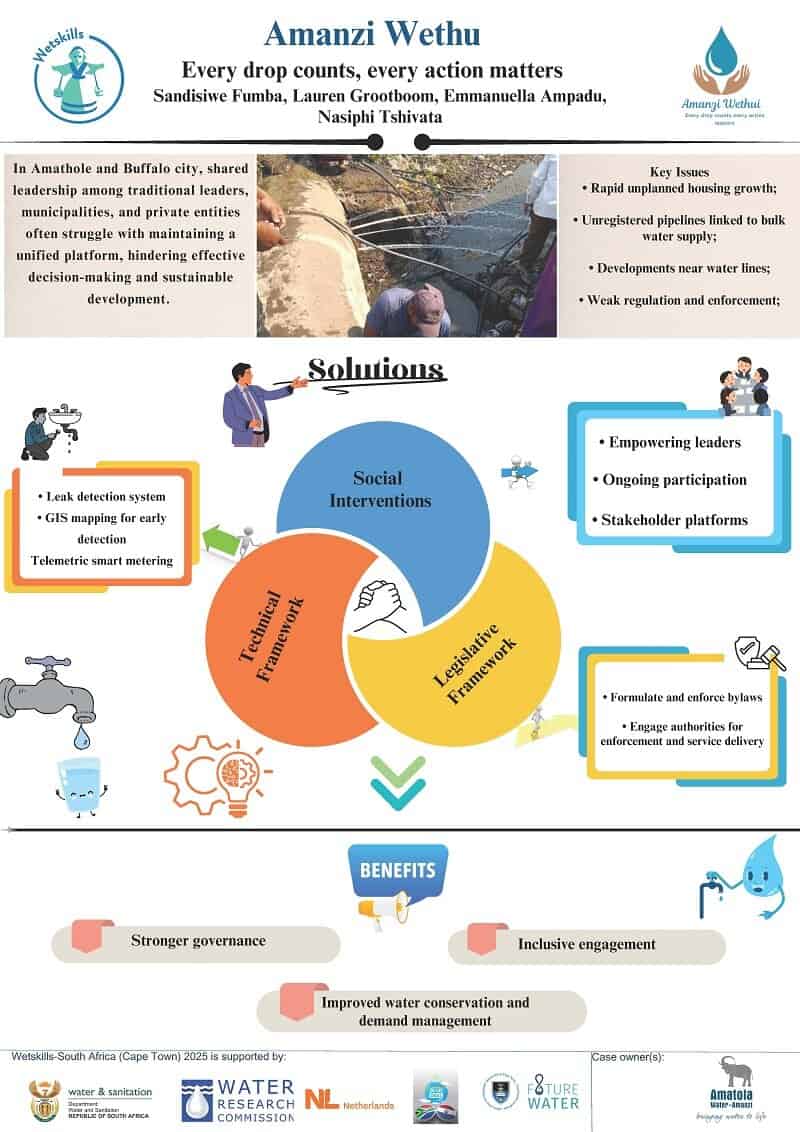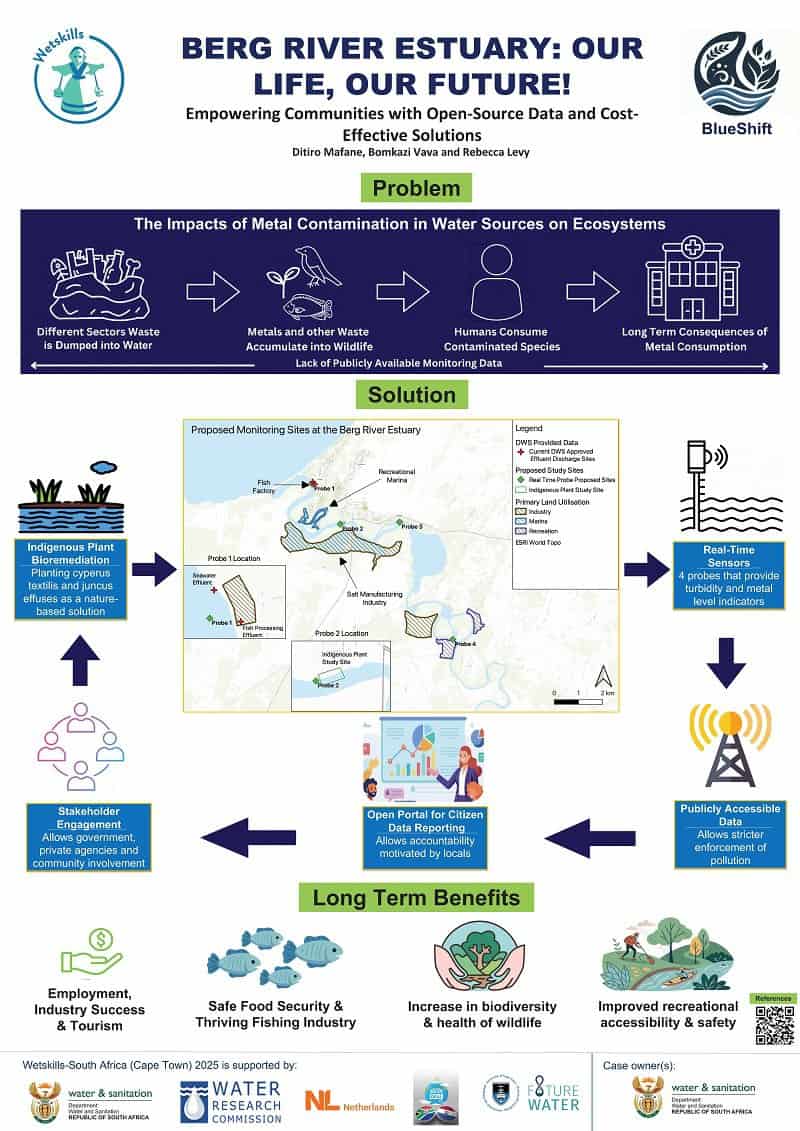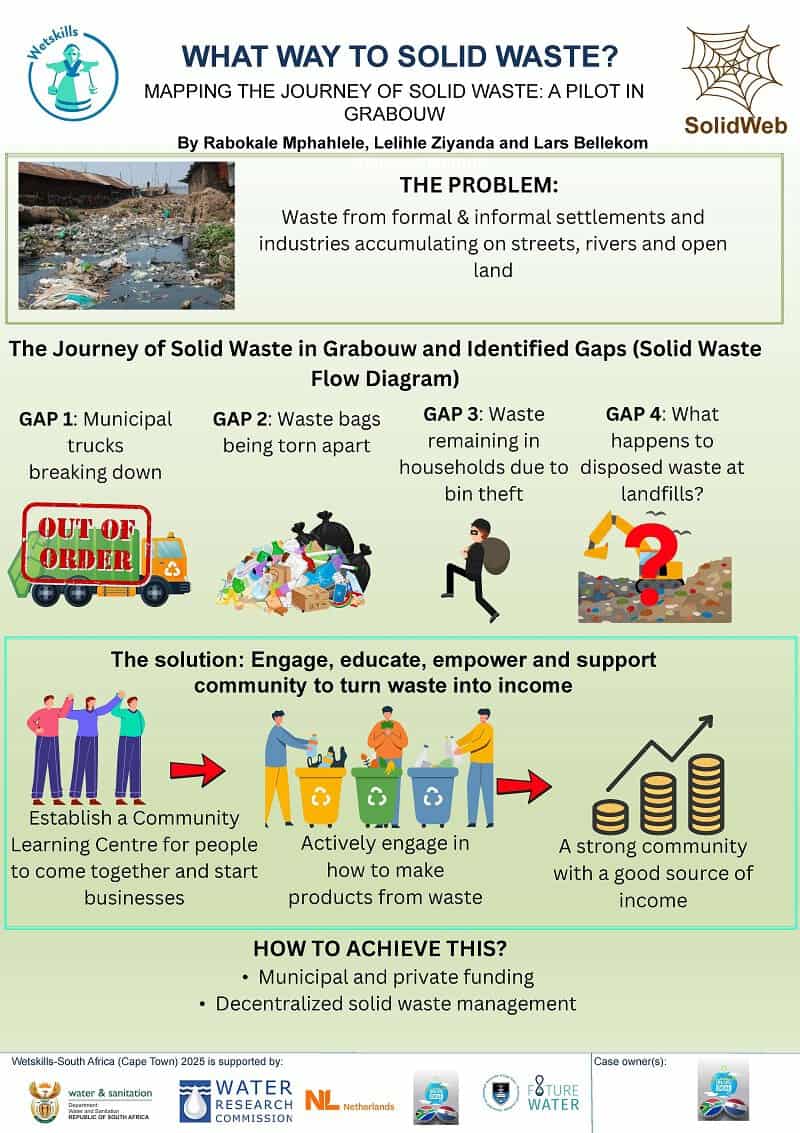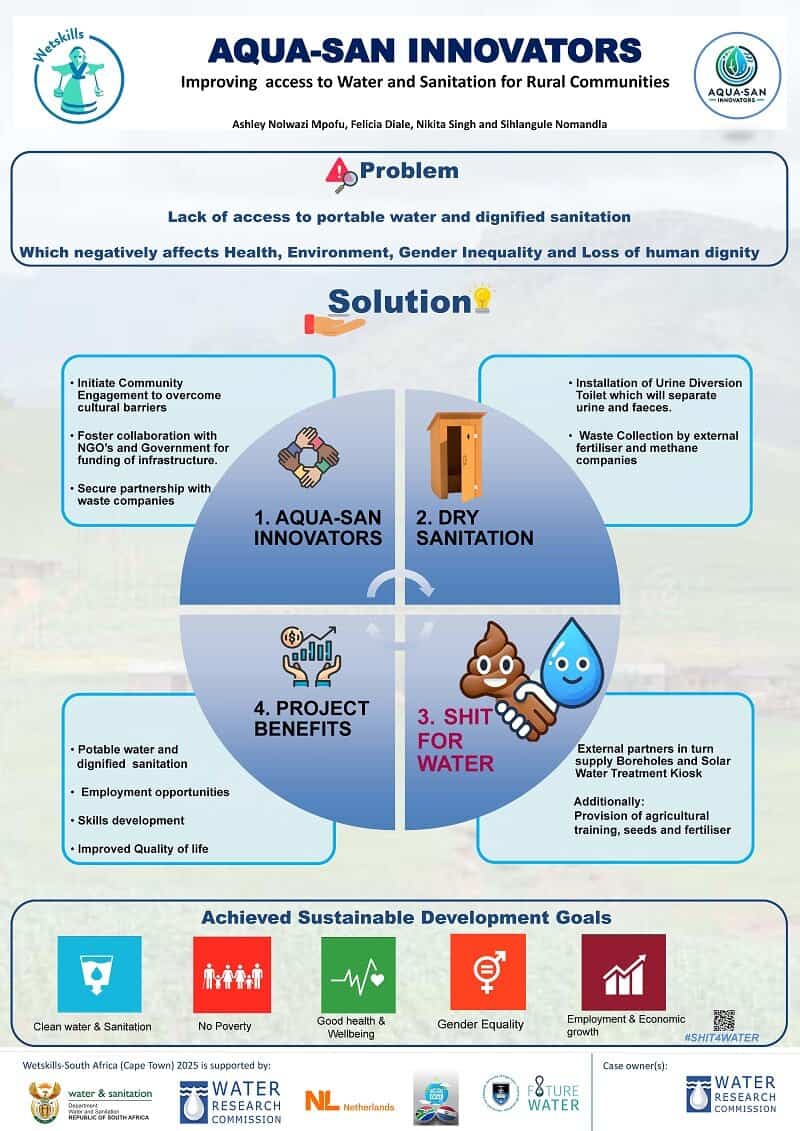
- This event has passed.
Wetskills-South Africa (Cape Town) 2025
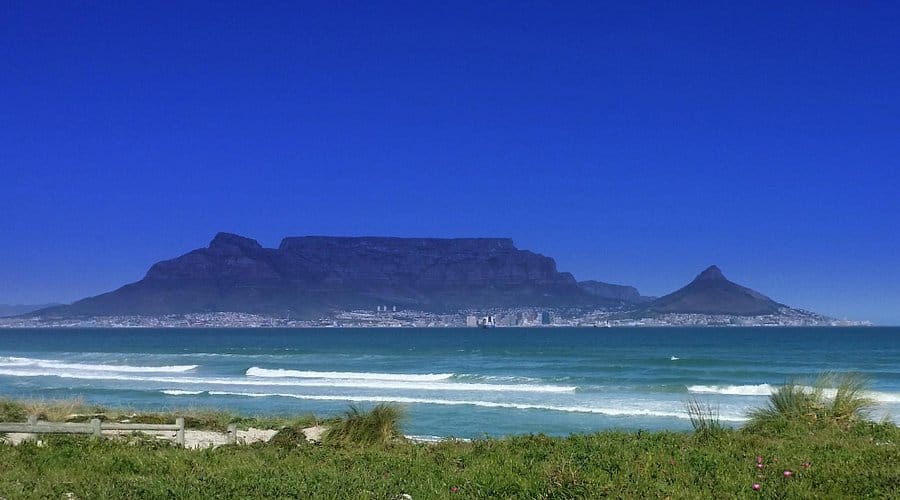

Welcome to the 10th Wetskills Challenge in South Africa!
We were back in the breathtaking coastal city of Cape Town, for the 10th Wetskills Challenge in South Africa. It was held from March 7 to March 20, 2025, at the University of Cape Town and in conjunction with the IWA Water Reuse and Reclamation Conference, with the grand award ceremony at the Cape Town International Convention Centre!
Joining in this event were 20 participants: from Ghana, Zimbabwe, The Netherlands and South Africa. Welcome!!
Follow us in this unforgettable two-week program that brought together vibrant, multidisciplinary teams. Our mission? To develop groundbreaking solutions for real-world challenges presented by our esteemed case owners from across the water sector—industry leaders, government agencies, NGOs, and knowledge institutes.
Participating in this Wetskills Event – What do you get?
A unique learning experience where you will tackle real-life water challenges with your own team!
- You will develop expertise in international cooperation, problem-solving, cross-cultural understanding, and interdisciplinary teamwork.
- You will develop or improve your networking and presentation abilities through pitch and poster
- You will get the opportunity to connect with other international water students/young professionals.
- You will immerse yourself in the scenic coastal city of Cape Town (voted of of the most beautiful cities in the world), exploring water-related sites, cultural sites, and engaging with local water professionals.
- Join parts of the IWA Reclamation and Reuse conference programme in Cape Town (incl. Wetskills Finals & Awarding Ceremony)
- You will learn and deepen your understanding of the South African water sector, gaining insights into key stakeholders, organizations, contemporary issues, and existing business opportunities.
- Upon program completion, receive a certificate of participation, officially joining the ranks of over 1400 Wetskills Alumni.
More information
For additional information please contact Craig Tinashe Tanyanyiwa, craig.tinashe@wetskills.com or Johan Oost, johan.oost@wetskills.com.
Event Blogs & Pictures

From Dams to Vineyards: A Journey Through Water Management in South Africa
Innovating with Purpose: A Day full of Ideas, Insights, and Meaningful Feedback
Balancing work and leisure
Day with the Experts
A Lazy Sunday? Or Maybe Not
Event Cases

Case 1: Reimagining Water Supply, Water 4.0 technologies for reuse
Case owner: World Water Academy
Water scarcity and securing reliable water sources is a growing global issue, exacerbated by climate change. Wastewater treatment plants offer an alternative: can treated effluent be repurposed to meet growing water demands? This challenge explores how Water 4.0 technologies – leveraging digitalization, automation, and decentralized water management – can enhance water reuse. Participants will develop a decision-making framework to assess effluent reuse, considering technological investments, water quality, business models, and stakeholder management. The outcome will inform training needs for water professionals and create a structured program to ensure effective Water 4.0 adoption.
Case 2: Addressing illegal connections in water supply systems
Case owner: Amatola Water
Amatola Water, a bulk water services provider, has a Water Conservation and Water Demand Management (WCWDM) Strategy that seeks to reduce non-revenue water as part of its commitment to water service delivery assurance and ensuring both financial and environmental sustainability. Illegal connections are a significant contributor to non-revenue water, especially in peri-urban and rural areas with no formal development plans, leading communities to find their own water access solutions. As Amatola Water is responsible for community and household water supply, this leads to an intractable social problem of water needs and / or service demands, that is not being met by relevant authorities. This question has operational, financial and water resource management implications.
Case 3: Metal Contamination in the Berg River Estuary
Case owner: Department of Water and Sanitation
The Berg River Estuary, a vital ecological and socio-economic resource on South Africa’s West Coast, is increasingly impacted by metal contamination from industrial, agricultural, and urban sources. Recent studies reveal concerning levels of metals such as copper (Cu), zinc (Zn), lead (Pb), and iron (Fe) accumulating in estuarine sediments, posing risks to aquatic life and commercial fisheries. This case challenges participants to develop a science-based strategy for mitigating metal contamination, while balancing ecological sustainability and economic feasibility. Solutions should focus on source control, sediment remediation, and long-term monitoring using innovative technologies.
Case 4: Mapping the Journey of Solid Waste
Case owner: Blue Deal South Africa
If solid waste isn’t managed properly, it becomes an growing environmental issue, with problems for soil, rivers, dams and ground water. On the other hand, recycling of solid waste will enhance economy, create new jobs and strengthen the sustainability of the planet. This case is about developing a so-called ‘Solid Waste Flow Diagram’ (SWFD) and pilot it on Grabouw, a town within the Theewaterskloof Local Municipality, with a fast growing population living in informal settlements. What information is available? Mapping the solid waste journey, from its sources to its final end points? What actions can be derived form this SWFD to diminish the diffuse pollution to the environment and increase profitable recycling?
Case 5: Improving Access to Water and Sanitation
Case owner: Water Research Commission
Access to safe drinking water and dignified sanitation remains a significant challenge in many African countries, particularly in rural and isolated areas. Some of the key challenges are water scarcity, poor infrastructure and the lack of maintenance of existing infrastructure. Water and sanitation projects require significant investment and many rural areas lack adequate government funding to support large-scale water infrastructure development. What can be done to improve access to affordable water and sanitation for rural communities in Southern Africa in order to deliver impact at scale?
Event Partners

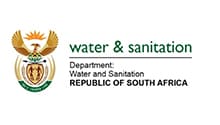
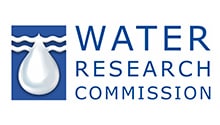
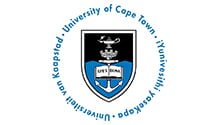
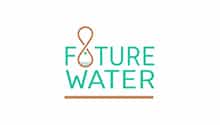
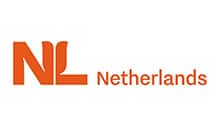

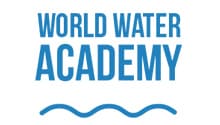

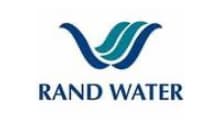
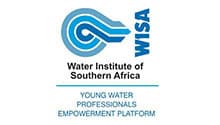
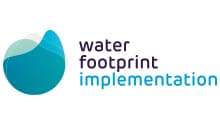

Previous Events: Cape Town (2023) and Sandton (2022)

